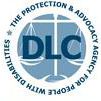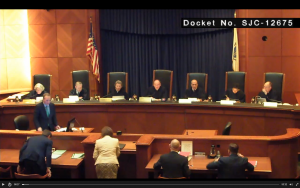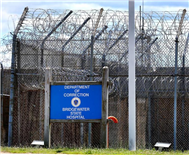The National Association of the Deaf, Disability Rights Education and Defense Fund, Disability Law Center, Civil Rights Education and Enforcement Center, and the law firm of Cohen Milstein Sellers & Toll provide the following Notice. Video of this Notice in American Sign Language is available at https://harvardcaptioningsettlement.com/.
NOTICE OF PROPOSED SETTLEMENT OF CLASS ACTION LAWSUIT
ATTENTION: ALL PEOPLE WHO ARE DEAF OR HARD OF HEARING WHO WANT CAPTIONING OF HARVARD’S ONLINE CONTENT
If you are deaf or hard of hearing and have tried to access or would like to access Harvard’s online video content with captions or to access Harvard’s online audio content with a transcript, you may be a member of the proposed Settlement Class affected by this lawsuit. The Settlement Class in this case does not include students of Harvard University. This is a court-authorized notice.
PLEASE READ THIS NOTICE CAREFULLY. YOUR RIGHTS MAY BE AFFECTED BY LEGAL PROCEEDINGS IN THIS CASE.
NOTICE OF CLASS ACTION
The purpose of this notice is to inform you of a proposed settlement in a pending class action lawsuit brought by the National Association of the Deaf (“NAD”) and three Deaf plaintiffs on behalf of deaf and hard of hearing individuals against President and Fellows of Harvard College (“Harvard”). The case is titled National Association of the Deaf v. Harvard University and the President and Fellows of Harvard College, No. 3:15-cv-30023-KAR, and is pending in the United States District Court for the District of Massachusetts. The proposed class action settlement (“Settlement”) is set forth in a proposed Consent Decree, which must be approved by the United States District Court.
BACKGROUND
This lawsuit alleges that Harvard violated the Americans with Disabilities Act and the Rehabilitation Act by failing to provide captioning for its publicly available online content. Plaintiffs and other deaf and hard of hearing individuals alleged that they attempted to access Harvard’s publicly available online content but were unable to do so because it did not have captions or had inaccurate captions.
This is a class action. In a class action, one or more people or organizations, called Class Representatives (in this case the National Association of the Deaf, C. Wayne Dore, Christy Smith, and Lee Nettles (“Plaintiffs”)), sue on behalf of people who have similar legal claims. All of these people are a Class or Class Members. One court resolves the issues for all Class Members. United States Magistrate Judge Katherine A. Robertson is in charge of this class action.
The Court did not decide in favor of either Plaintiffs or Harvard in this case. Instead, both sides agreed to a settlement. That way, they avoid the cost, delay, and uncertainty of a trial. The settlement provides benefits that go to the Class Members. The Class Representatives and Class Counsel (the attorneys appointed by the Court to represent the Class) think the proposed settlement is in the best interests of the Class Members, taking into account the benefits of the settlement, the risks of continued litigation, and the delay in obtaining relief for the Class if the litigation continues.
THE SETTLEMENT CLASS
The Settlement Class includes all persons (other than students of Harvard University) who, at any time between February 11, 2013 and the date of preliminary approval of this settlement, have claimed or could have claimed to assert a right under Title III of the ADA, Section 504 of the Rehabilitation Act, and/or other federal, state or local statutes or regulations that set forth standards or
obligations coterminous with or equivalent to Title III of the Americans with Disabilities Act or any of the rules or regulations promulgated thereunder, alleging that they are deaf or hard of hearing and that Harvard has failed to make accessible to persons who are deaf or hard of hearing online content posted and available for the general public that is produced, created, hosted, linked to, or embedded by Harvard.
SUMMARY OF THE PROPOSED SETTLEMENT
The following is a summary of certain provisions of the Settlement. The complete Settlement, set forth in the proposed Consent Decree, is available as set forth below.
The Settlement requires Harvard to caption its online content as follows:
- Content created and produced at Harvard on or after December 1, 2019 and posted on a University Website will be captioned when posted.
- Content created and produced at Harvard prior to December 1, 2019 and posted on a University Website will be captioned upon request within five business days.
Content on a “University Website” means any content on a public-facing website or web‐based application within a Harvard-controlled domain used to conduct University Business by Harvard faculty and staff. The term “University Website” includes websites operated by all of Harvard’s Schools and Academic Departments, News Organizations, Administrative Offices, Museums and Libraries, Academic Centers, Initiatives, and Programs. “University Business” includes activities carried out under the auspices of Harvard University but does not include activities organized or conducted by students or student organizations.
The following content will also be captioned when posted (after December 1, 2019) or upon request (if posted before that time):
- Content created and produced at Harvard by a Department Sponsored Student Organization, as defined in the Harvard College Handbook for Students, and posted on any public-facing website within a Harvard-controlled domain.
- Content posted as part of a Massive Open Online Course.
- Content created and produced at Harvard and on the official YouTube channel and, if any, the official Vimeo or SoundCloud channel for certain Harvard schools, museums, libraries, and other units.
Harvard will also provide live captioning for University-wide events.
The settlement also requires Harvard to report to NAD on its compliance with these terms and establishes a process by which members of the public can request that content be captioned.
RELEASE OF CLAIMS
The Settlement resolves and releases all claims for injunctive, declaratory, or other non-monetary relief and attorneys’ fees and costs that were brought or could have been brought against Harvard relating to the lack of captioning or accurate captioning of free online audio or video content for the general public that is produced, created, hosted, linked to, or embedded by Harvard.
REASONABLE ATTORNEYS’ FEES, COSTS AND EXPENSES
The settlement class is represented by the Civil Rights Education and Enforcement Center, the Disability Law Center, the Disability Rights Education and Defense Fund, the National Association of the Deaf, and the law firm of Cohen Milstein Sellers & Toll PLLC (“Class Counsel”). Harvard has agreed not to oppose Class Counsel’s request for an award of their reasonable attorneys’ fees, expenses, and costs in the amount of $1,575,000. This amount is subject to the approval by the Court.
FAIRNESS OF SETTLEMENT
The Class Representatives and Class Counsel have concluded that the terms and conditions of the proposed Settlement are fair, reasonable, adequate, and in the best interests of the Settlement Class. In reaching this conclusion, the Class Representatives and Class Counsel have considered the benefits of the settlement, the possible outcomes of continued litigation of these issues, the expense and length of continued litigation, and actual and possible appeals.
THE COURT’S FINAL APPROVAL/FAIRNESS HEARING
The Court has preliminarily approved the Settlement, and has scheduled a hearing for February 25, 2020 at 11:00 a.m. in the Hampshire Courtroom, 300 State Street, Springfield, Massachusetts 01105 to decide whether the proposed Settlement is fair, reasonable, and adequate, and should be finally approved. Although you are not required to attend, as a Settlement Class Member, you have the right to attend and be heard at this hearing, as specified in the next section below. At the hearing, the Court will consider any objections to the Settlement. Judge Robertson will listen to people who have asked to speak at the hearing. After the hearing, the Court will decide whether to approve the Settlement. The Court will also consider the agreed upon amount to award Class Counsel as reasonable attorneys’ fees, costs and litigation expenses. We do not know how long this decision will take.
If the Court approves the Settlement, all Class members will be bound by the provisions of the Settlement with respect to claims against Harvard for injunctive relief and attorneys’ fees and relating to captioning of online content.
OBJECTIONS TO THE SETTLEMENT
If you wish to object to the Settlement or to speak at the hearing, you must send any objection and/or notice of your intent to appear at the hearing to the Court in writing on or before February 10, 2020, and include the case number (Civil Action No. 3:15-cv-30023), to the following address: Clerk of the Court, US Courthouse, 300 State Street, Springfield, Massachusetts 01105.
You may also object by filling out this form: https://public.mad.uscourts.gov/FairnessHearing.html
Please note that the Court can only approve or deny the Settlement. The Court cannot change the Settlement’s terms.
All objections must be submitted or postmarked on or before February 10, 2020.
Any Class Member who does not object at or before the Final Approval Hearing will be deemed to have approved the Settlement and to have waived such objections and shall not be able to make any objections (by appeal or otherwise) to the Settlement.
IF YOU DO NOT OPPOSE THIS SETTLEMENT, YOU NEED NOT APPEAR OR FILE ANYTHING IN WRITING.
FURTHER INFORMATION
The terms of the Settlement are only summarized in this notice. For the precise and full terms and conditions of the Settlement, please see the proposed Consent Decree available at www.harvardcaptioningsettlement.com/consentdecree, by accessing the Court docket on this case through the Court’s Public Access to Electronic Records (PACER) system at https://www.pacer.gov, or by visiting the office of the Clerk of the Court for the United States District Court for the District of Massachusetts, 300 State Street, Springfield, Massachusetts 01105, between 8:30 a.m. and 4:30 p.m., Monday through Friday, excluding Court holidays.
You can also obtain more detailed information about the Settlement or a copy of the Settlement Agreement by calling 240-468-7109 (videophone) or 800-308-1878 (voice), by emailing harvardsettlement@creeclaw.org, or by contacting Class Counsel by mail at any of the following addresses:
| Thomas P. Murphy
Disability Law Center, Inc. 32 Industrial Drive East Northampton, MA 01060 |
Amy F. Robertson
Civil Rights Education and Enforcement Center 1245 E. Colfax Ave., Suite 400 Denver, CO 80218
|
| Joseph M. Sellers
Shaylyn Cochran Cohen Milstein Sellers & Toll PLLC 1100 New York Ave NW, Fifth Floor Washington DC 20005 |
Arlene Mayerson
Namita Gupta Disability Rights Education And Defense Fund, Inc. 3075 Adeline Street Suite 210 Berkeley, CA 94703 |
| Howard Rosenblum
The National Association of The Deaf Law and Advocacy Center 8630 Fenton Street, Suite 820 Silver Spring, MD 20910 |
Please do not direct questions to the District Court. To obtain copies of this Notice or the Consent Decree in alternative accessible formats, please contact Class Counsel listed above.



